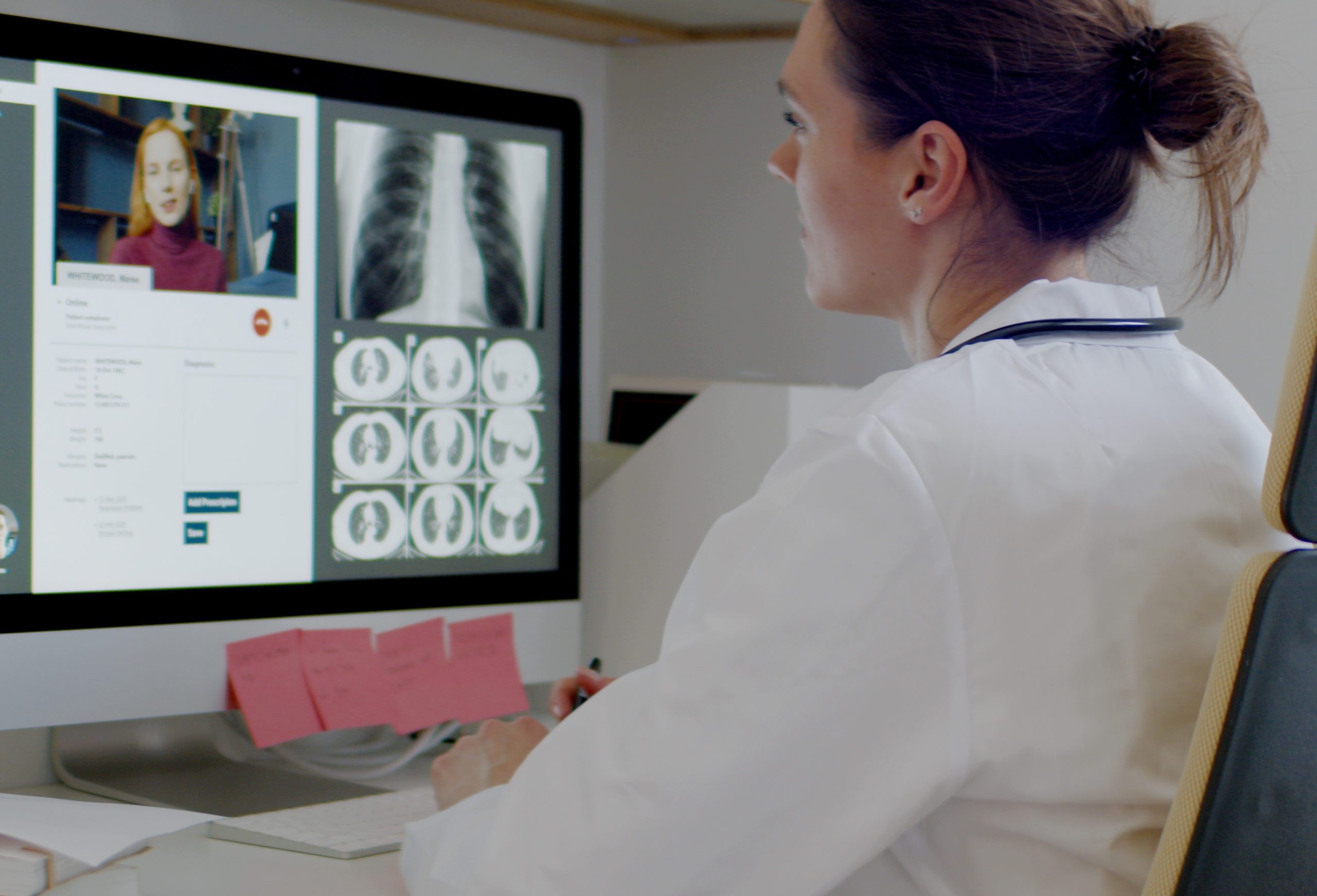How MedTech Startup OutSense Found Inspiration in a Sci-Fi Movie (MedTech Download)

Key Takeaways
- Medtech startup OutSense has taken a science fiction concept and retrofitted it for the modern world. Its easy-to-use cancer-screening technology is poised to save lives by attaching to your toilet at home.
- The pandemic is accelerating many technologies. Among them is Eko Health’s AI-based digital telescope, which is expected to support providers in offering in-person and virtual care.
- If current trends continue, by 2050, an expected 10 million people will die due to antibiotic resistance. That is more deaths than those due to cancer. Day Zero Diagnostics is poised to reduce the trend through its suite of technologies that allow doctors to quickly identify drug-resistant bacteria.
How a SciFi Movie and a Toilet Landed MedTech Startup OutSense $2.2M
Inspiration is known for striking in the most unlikely places – in the shower, on a run, or at times when you’re supposed to be disconnected from work (a shout out to all those bar napkins out there). Inspiration can also take unlikely or unexpected forms, resulting in some of the most groundbreaking innovations of all time. From the Post-It note to dry cleaning, people have shown time and again that genius is fostered in mysterious, and often opportunistic, ways.
Recently medtech startup OutSence secured $2.2 million in funding for a new, potentially life-saving device. As mentioned in Geektime, the device can “turn your toilet bowl into an at-home lab,” scanning excreta for signs of cancer. It can even decipher between users through scanning for nearby smartwatches and smartphones, among other techniques. Read more to discover how a sci-fi movie inspired the founder to bring his idea for the tech to reality
Eko Raises $65M In Series C Round To Expand AI-Based Digital Stethoscope For At-Home Patient Monitoring

While this story continues to be told, it is a relevant one. The pandemic has changed everything. Some industries or elements of society have benefited, some are on the verge of collapse. But few are able to tout business as usual. Like the 7 degrees that separate those in Hollywood from Kevin Bacon, even if your business hasn’t been directly impacted by COVID, your clients, your customers, or your ecosystem has.
For many medtech entrepreneurs and startups, the pandemic has created a land of opportunity. One of those companies that finds itself on the fast track to hyper-growth is Eko Health, a cardiopulmonary digital health company, that recently announced it received $65m in a Series C round. Through its virtual cardiac technology, the company has been tapped to provide a bridge between in-person and virtual medicine. CEO and co-founder, Connor Landgraf, explained in a recent news release that “The explosion in demand for virtual cardiac and pulmonary care has driven Eko’s rapid expansion at thousands of hospitals and health care facilities.”
Whether your medical device is suddently finding unprecedented relevance or if your company has seized upon an opportunity to serve the needs of our “new world,” one thing is clear. The advancements that have been born or accelerated by the pandemic are creating new standards that are not going to disappear, even when the pathogen does.
Rapid Identification of Antibiotic-Resistant Infections: Interview with Jong Lee, CEO at Day Zero Diagnostics
Antibiotics continue to be one of the greatest discoveries of modern medicine, saving millions of lives. But, as we know, their widespread overuse has brought unintended consequences. The most notable and dire for patients is antibiotic resistance, which has even led to the discontinued use of some previously-effective drugs.
Currently, the methods by which we fight these pathogens puts doctors at a disadvantage. Until now. In this interview, Day Zero Diagnostics CEO Jong Lee discusses his company’s suite of technologies that allow doctors to identify drug-resistant bacteria faster than ever before. He points out the dramatic need for these advancements, saying “Antibiotic resistance causes at least 700,000 global deaths annually. By 2050, this figure is expected to grow to 10 million—more than deaths due to cancer—if current trends continue.”
Innovators Unite: HHS Launches ‘Design-A-Thon’ To Improve COVID-19 Testing

Time doesn’t play by the rules when it comes to pandemic life. While in many respects it seems like the virus has been calling the shots for ages, the reality is that it’s been just 8 months since its takeover. And recently, in what has also seemed to be a defiance of time and space, both Pfizer and Moderna have presented two viable vaccine candidates. Operation Warp Speed has certainly lived up to it’s name, advancing vaccines at a stunningly rapid (and unprecedented) rate.
This month the HHS announced another COVID-centered public-private partnership, this time seeking software and hardware solutions aimed at improving the collection and use of data surrounding COVID-19. The At-Anywhere Diagnostics Design-A-Thon is described as a “virtual technology sprint” aimed at “improving the speed, utility and comprehensiveness of diagnostic data collection and use, as well as developing user-friendly software and digital health tools that can help overcome challenges associated with testing in places like homes, schools and offices, which the project’s website calls ‘at-anywhere testing.’” Let’s hope both projects experience smooth sailing.
Stay up-to-date on everything that matters to medtech entrepreneurs and executives. Subscribe below to receive industry insights, medtech resources, and more, delivered directly to your inbox.




